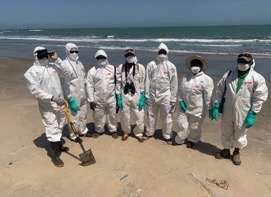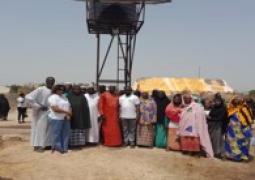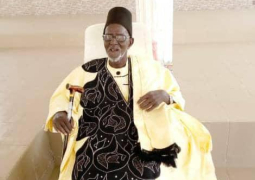
The initiative was supported by Project Wild Gambia under the auspicies of Dr Armstrong.
Addressing reporters at his office at Abuko Nature Reserve, Fagimba Camara, head of WABSA Research Unit, said the field trip accorded them the opportunity to assess the situation of dead birds and those affected by the recent virus that hit the bird population around Tanji Bird Reserve and Bijilo Island.
“It was a tedious day assessment as more dead bird species were buried which ranges from Royal Tern 316, Caspian Tern 29, Great Cormorant 4, Little Tern 4, Gull Bill Tern6, Sandwich Tern 1, and Grey Headed Gull 9.” Fagimba explained.
Camara commended the Director of Parks and Wildlife Management (DPWM) and staff for the logistical support, Project Wild Gambia as well as president of Gambia Bird Watchers Association for their support during the recent flu outbreaks.
The virus, he added, was detected after reports of unusual deaths among the wild birds, with samples collected from the Tanji Bird Reserve and sent to a laboratory in Dakar for sample testing.
"As the Gambia has recently confirmed an outbreak of the highly pathogenic H5N1 bird flu along the coastal Gambia, particularly around Tanji Bird Reserve, Gambian authorities are working to reduce the risk of infection and prevent transmission to poultry."
Camara reminded that avian influenza also bird flu has been spreading and has killed more 200 million birds around the world in the past years, thereby resulting in hike in the price of eggs globally.





